50+ SAMPLE Aquaculture or Aquaponics Business Plan
-
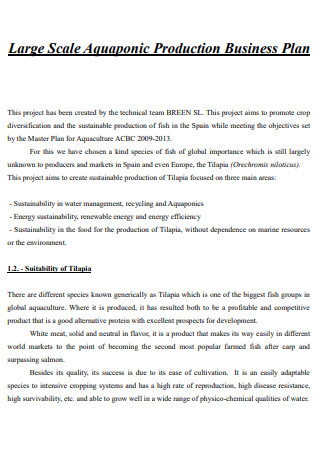
Large Scale Aquaponic Production Business Plan
download now -
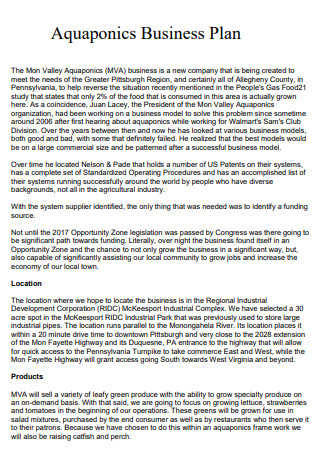
Basic Aquaponic Business Plan
download now -
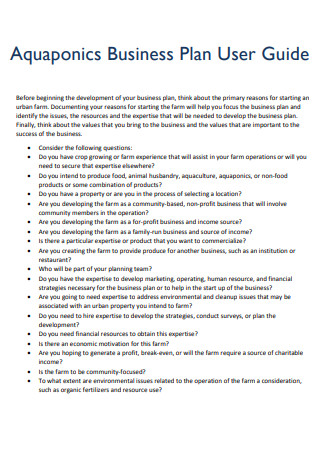
Aquaponic Business Plan User Guide
download now -
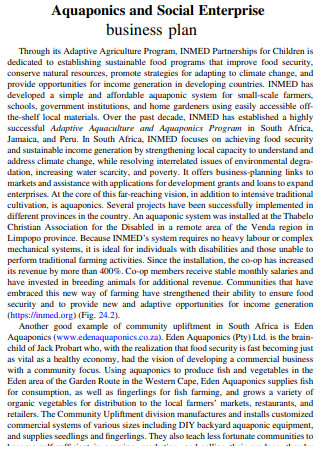
Aquaponics and Social Enterprise Business Plan
download now -
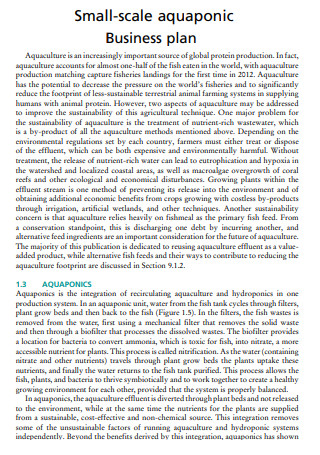
Small Scale Aquaponics Business Plan
download now -

Urban Farm Business Plan
download now -
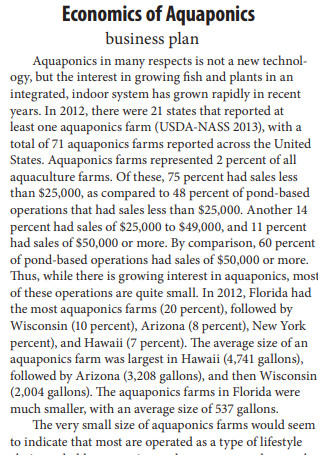
Economics of Aquaponics Business Plan
download now -
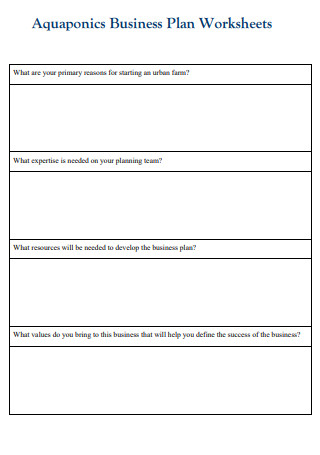
Aquaponics Business Plan Worksheet
download now -
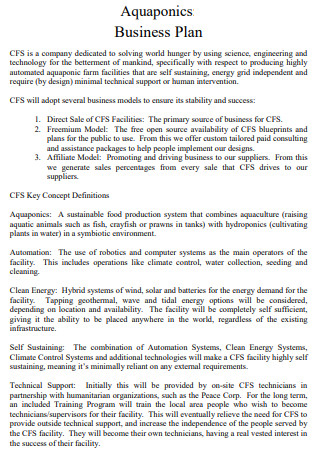
Sample Aquaponics Business Plan
download now -
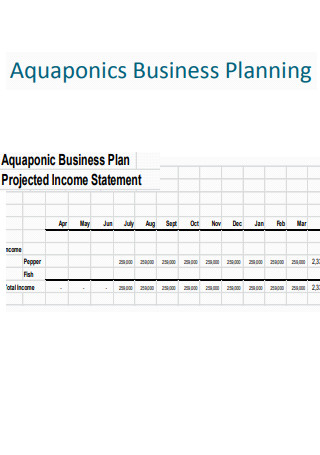
Aquaponics Business Planning
download now -
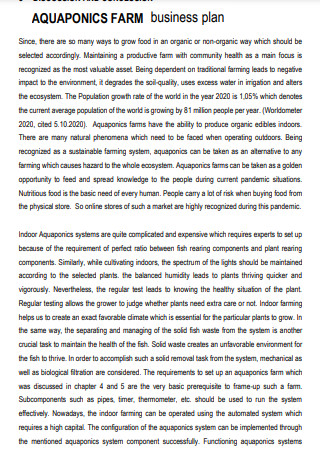
Aquaponics Farm Business Plan
download now -

Aquaculture Business Plan
download now -
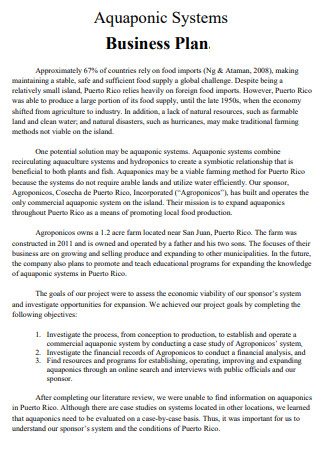
Aquaponics System Business Plan
download now -
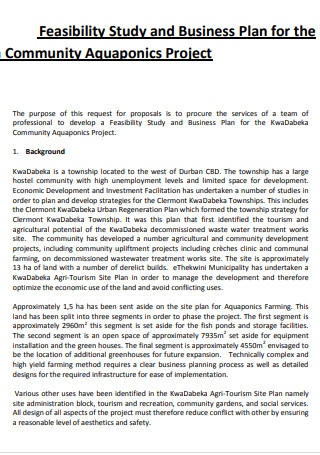
Aquaponics Project Business Plan
download now -
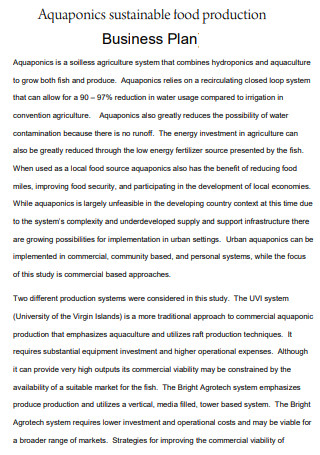
Aquaponics Sustainable Business Plan
download now -
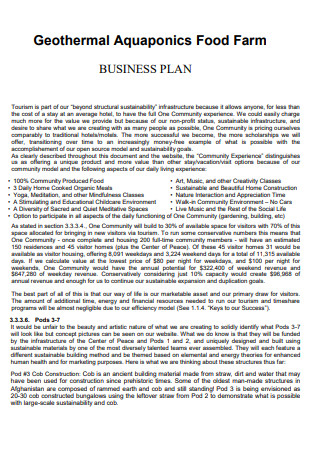
Aquaponics Food Farm Business Plan
download now -
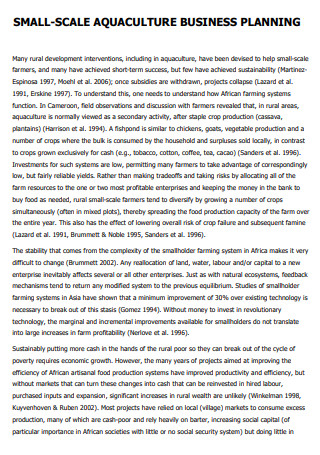
Small Scale Aquaculture Business Plan
download now -
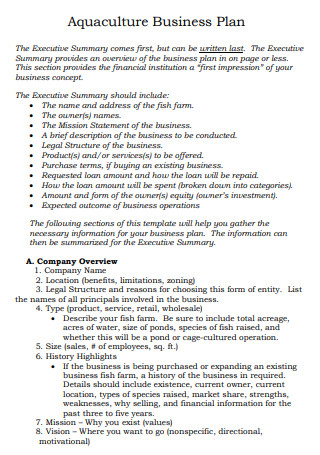
Sample Aquaculture Business Plan
download now -
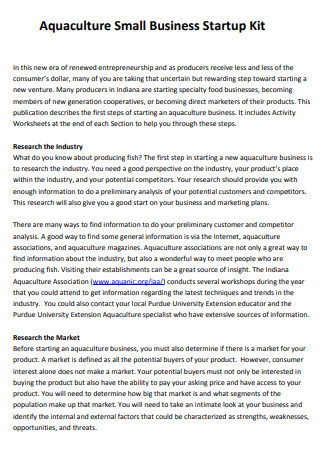
Aquaculture Small Business Plan
download now -
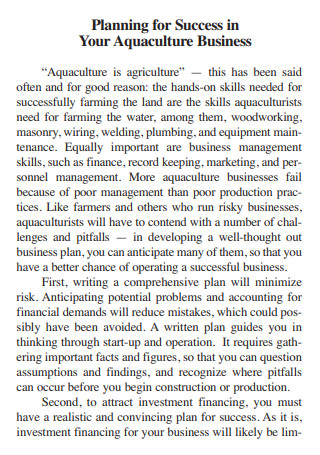
Aquaculture Business Plan Example
download now -
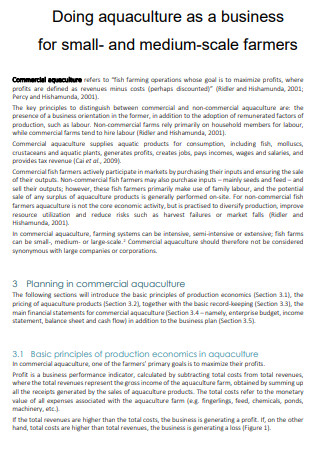
Medium Scale Aquaculture Business Plan
download now -
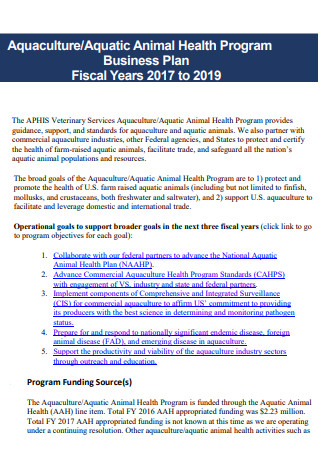
Aquaculture Aquatic Animal Health Program Business Plan
download now -
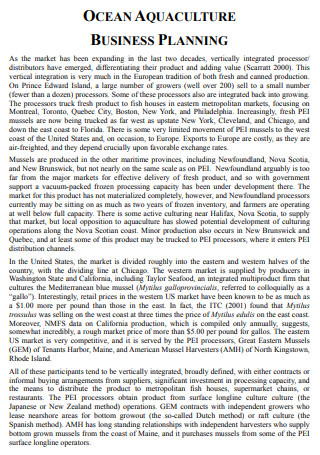
Ocean Aquaculture Business Plan
download now -
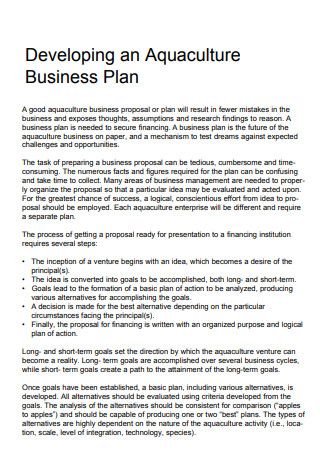
Developing an Aquaculture Business Plan
download now -
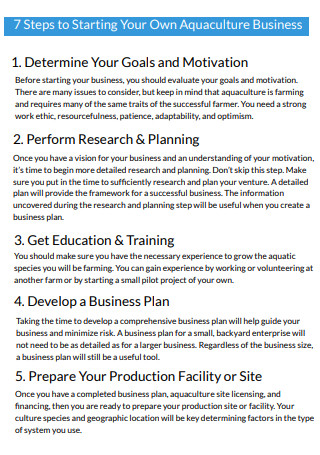
7 Steps Aquaculture Business Plan
download now -
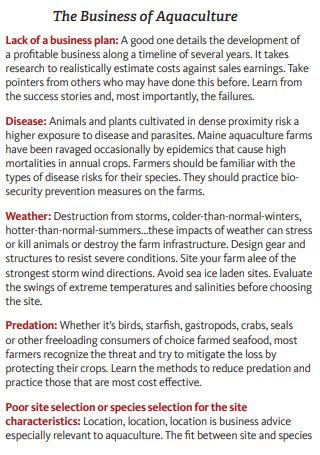
Standard Aquaculture Business Plan
download now -
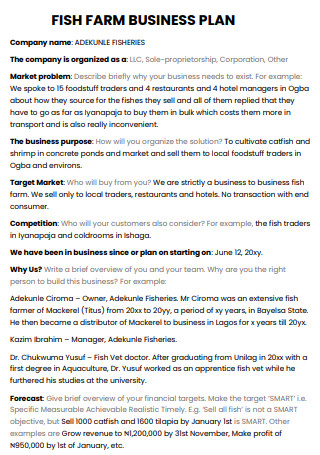
Commercial Aquaculture Business Plan
download now -
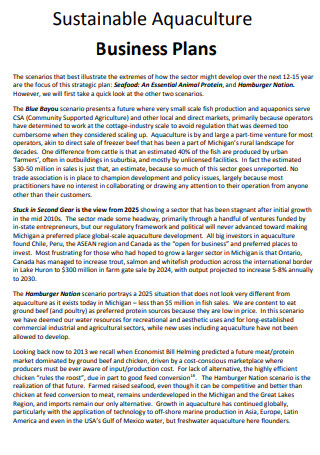
Sustainable Aquaculture Business Plan
download now -
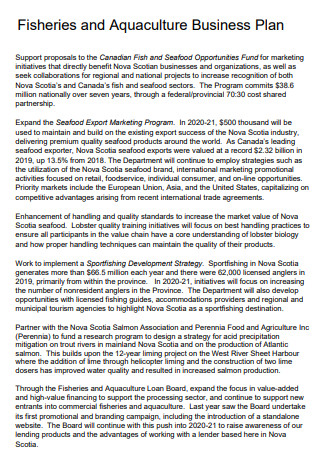
Fisheries And Aquaculture Business Plan
download now -

Shellfish Aquaculture Financing Business Plan
download now -
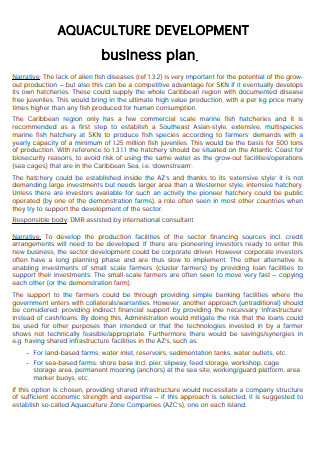
Aquaculture Developing Business Plan
download now -
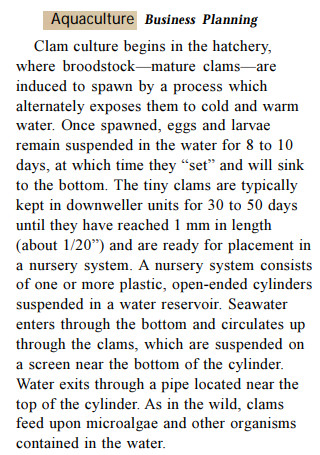
Aquaculture And Natural Resources Business Plan
download now -
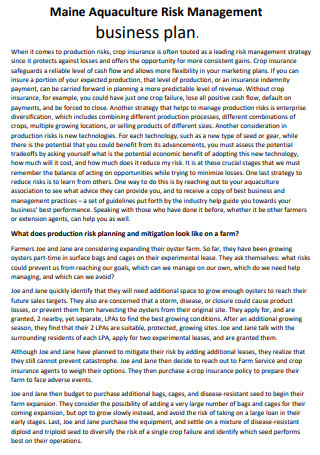
Aquaculture Risk Management Business Plan
download now -
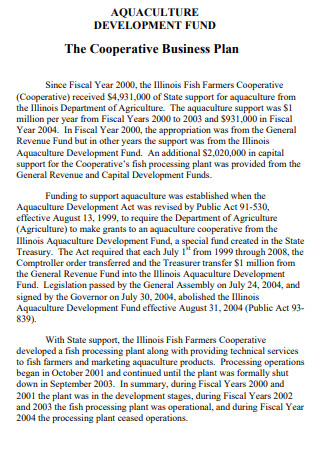
Aquaculture Cooperative Business Plan
download now -
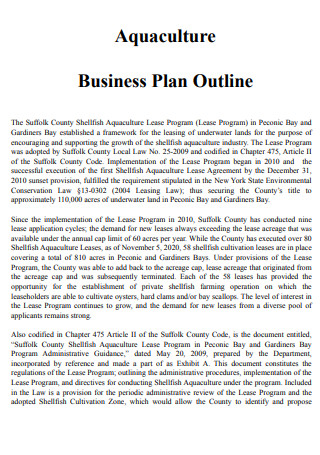
Aquaculture Business Plan Outline
download now -
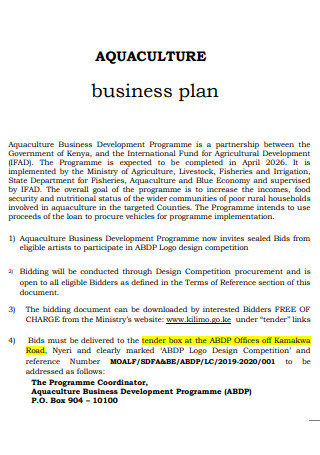
Aquaculture Business Plan Format
download now -

Integrated Aquaculture Business Plan
download now -
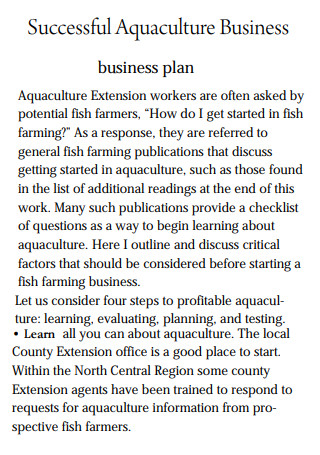
Successful Aquaculture Business Plan
download now -
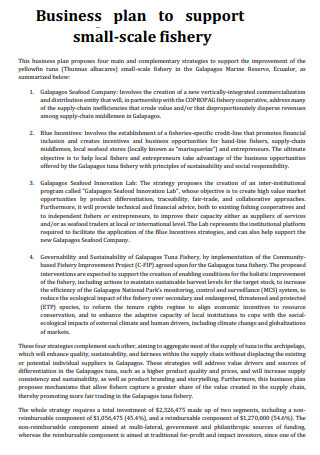
Small Scale Fisheries Business Plan
download now -
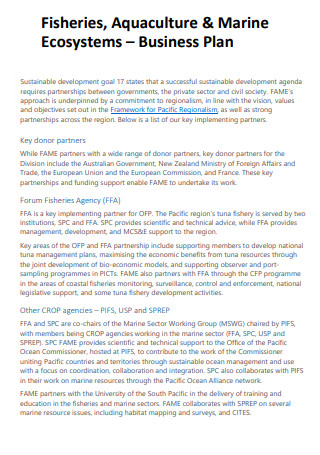
Aquaculture & Marine Ecosystems Business Plan
download now -
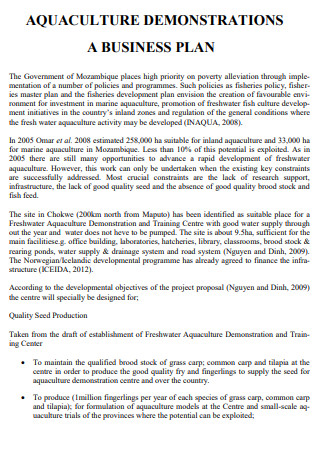
Aquaculture Demonstration Business Plan
download now -
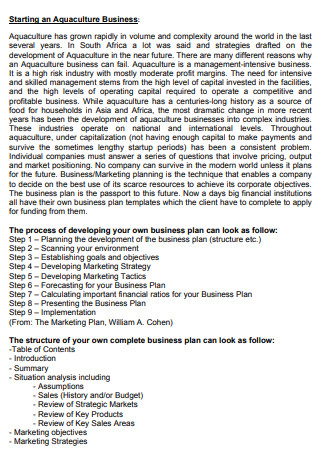
Professional Aquaculture Business Plan
download now -
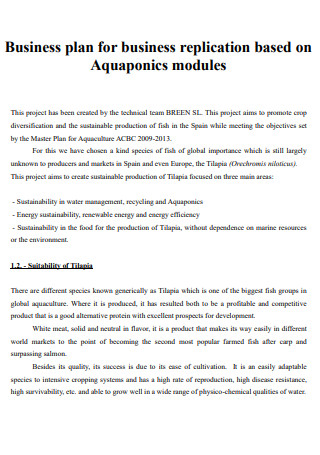
Aquaculture Modules for Business Plan
download now -
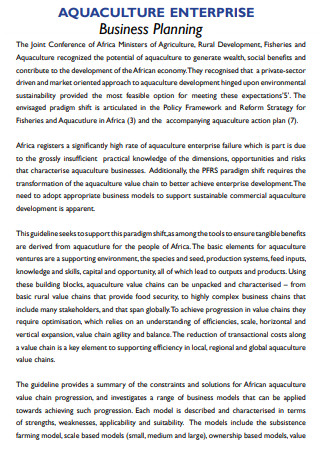
Aquaculture Enterprise Business Plan
download now -
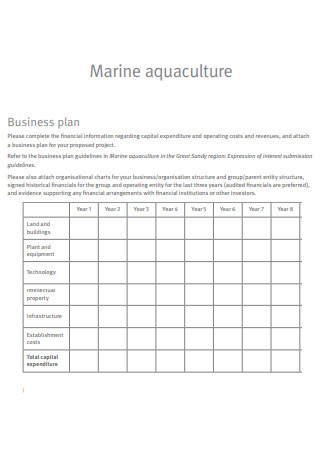
Marine Aquaculture Business Plan
download now -
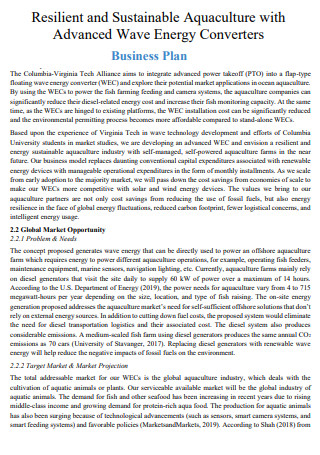
Aquaculture with Advanced Wave Energy Business Plan
download now -
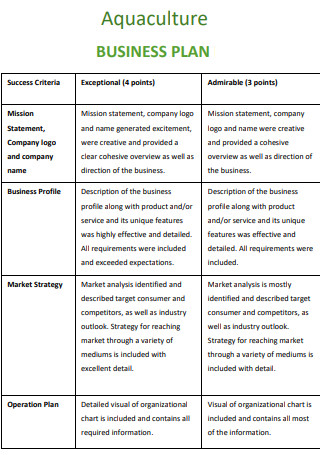
Aquaculture Business Plan in PDF
download now -
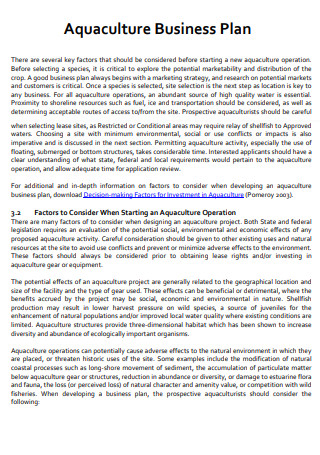
Aquaculture Permitting Business Plan
download now -
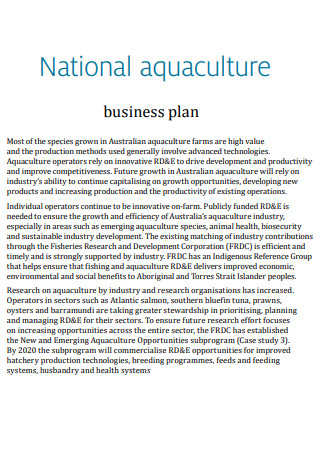
National Aquaculture Business Plan
download now -
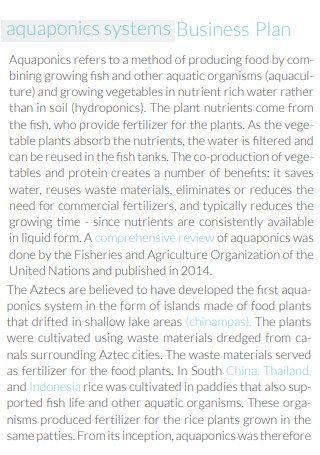
Aquaponic Systems Business Plan
download now
FREE Aquaculture or Aquaponics Business Plan s to Download
50+ SAMPLE Aquaculture or Aquaponics Business Plan
What Is an Aquaculture or Aquaponics Business Plan?
What Is an Aquaponics Business?
Benefits Of an Aquaculture or Aquaponics Business
Concerns To Consider in Aquaculture Business
How To Make an Aquaculture or Aquaponics Business Plan
FAQS
Does Aquaponics Generate a Lot of Profit?
Is It Safe to Eat Fish from Aquaponics?
Why Is Aquaponics Seen as Sustainable?
What Is an Aquaculture or Aquaponics Business Plan?
An aquaculture or aquaponics business plan is a document that contains all of the elements of an aquaculture or aquaponics business, from the marketing plan to the organization and operation of an aquaculture or aquaponics business and its farming proposal. It provides insight for the plan’s execution. It is a comprehensive and complete document that includes a financial estimate for the cost of starting an aquaponics business, as well as a waste management plan and, most importantly, how the business would operate and produce a profit. Because it is still a business, and money is inevitably involved, an aquaponics farming business plan is required.
What Is an Aquaponics Business?
Aquaponics is characterized as a hybrid food producing method that combines aquaculture and hydroponics on the AGRMC website. An aquaponics or aquaculture business is another type of agriculture business that centers around the idea of growing vegetables in water while simultaneously farming fish such as tilapia. It is an organic farming method since there is a cycle of fish excrement being utilized as a nutrition for the veggies cultivated, and these fish will consume the germs or insects that may have contaminated the plants, making it a highly sustainable agricultural venture.
Benefits Of an Aquaculture or Aquaponics Business
Its organic method of growing high-quality vegetables is already a significant benefit for farmers who want to establish a business in their own backyard without having to worry about signing land lease agreements. Farming on land necessitates a significant amount of manpower and upkeep, as well as renting or buying and sacrificing a large plot of land. As a result, anyone looking to start a farming business have the option of venturing into aquaculture. And here’s why you should as well.
Concerns To Consider in Aquaculture Business
The possibility of failure, as with every business, is still lingering like a dagger. It is not certain that you will be successful in business, no matter which area you are in. So here are some thoughts to consider for your aquaculture business.
How To Make an Aquaculture or Aquaponics Business Plan
What do people really consider as a success in the business world? There are too many external factors that contributes to the word, and different interpretation. But if there’s something that everyone agrees, it is that having a business plan makes it easier to conduct business.
Step 1: Outline.
Outlines are essential at the start of any aquaponics business plan. It provides an overview of your company’s goals and mission. It is a summary of everything that would be included and implemented following the company’s launch. It aids navigation and provides a smooth flow for the reader before moving on to the next section. The outline should showcase your commercial aquaponics business’s vision.
Step 2: Financial
As previously said, dealing with financial ramifications is unavoidable in business. Expected expenses for acquiring materials for establishing the farm, maintaining it, and the tools required for each operation should be tracked. In addition to labor fees, delivery fees should not be missed. There may be a considerable period of time before any profit is generated, thus the money spent should account for this. Payment for the suppliers, and what is indicated in the supplier contract, for crops or fish are also included. This should contain the terms of obtaining profit, as well as the projected income from customers and how it should progress over time. Because aquaponics is still something that some people may find queasy, one cannot expect the business to explode overnight. It is advisable to research what the typical commercial aquaponics startup cost is. This should contain the price of the produce as well.
Step 3: Marketing
Marketing ideas for attracting clients are included in marketing. It should also highlight how the products will achieve a market position ahead of competitors. This should cover how the product will be distributed, whether or not deliveries to individuals’ houses are optional, and how it will be promoted, including whether or if social media will be used to gain visibility. Other marketing strategies include inviting customers to tour the inside of the farm to witness how it is produced firsthand. This is the section that highlights the marketing strategies.
Step 4: Operation
Operating a large-scale commercial aquaponics or aquaculture business may necessitate a larger workforce. It is critical for the smooth operation of the production flow to know who is in charge of product management. It is preferable to have someone in charge of procuring supplies in order to avoid delays and have someone engage with the supplier about their demand. Because there is physical labor as well as administrative responsibilities to complete, it is impossible to perform everything on one’s own.
Step 5: Risk Management
In business, risk is something that cannot be avoided. There is a danger of failing to produce high-quality crop crops or failing to attract clients in order to maintain a steady flow of earnings. A detailed plan for dealing with potential risks that would interrupt farm operations should also be included, in order to prepare for expectations and failures, as well as to establish a backup plan just in case.
FAQS
Does Aquaponics Generate a Lot of Profit?
While it is feasible to save money on fertilizer and reduce water usage, which is an evident disadvantage of traditional farming, it requires a large amount of investment money to even get started. Aquaponics, which requires power 24 hours a day for upkeep and operation, may create a tremendous pressure on the owner. Yes, it is highly sustainable, but the amount of profit that may be made depends on its commercial success and reception, particularly among locals.
Is It Safe to Eat Fish from Aquaponics?
Yes, but not all of them. Of course, not all fish are meant to be consumed. Some fish, for example, may be harmful to your health, while others are purely decorative. There are no chemicals used on plants that would make them harmful to consume, thus eating a fish that lives in an aquaponics system is rather safe. It is still like a pond-grown fish, and its food is even more organic and natural. There are many different varieties of fish you may use in your aquaponics, and if you want to eat it, make sure the type of fish you choose is widely recognized as a food.
Why Is Aquaponics Seen as Sustainable?
Aquaponics is sustainable because of the normal process that occurs in the production cycle, as well as how both animals and plants benefit from naturally created nutrients. It is also highly environmentally friendly because the use of non-renewable materials lasts for a long time rather than being discarded after harvesting. Of course, there is less water consumption and labor involved than in traditional farming.
That’s all there is to it. Before you get into the agriculture business, think about whether aquaponics or traditional farming would be beneficial for you and analyze the pros and cons. You can be confident that Sample.Net have aquaponics business plan pdf form and aquaponics business plan templates that you can download and print whenever you want to begin that business!
